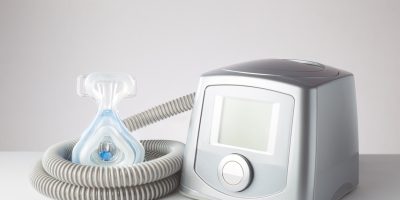Philips CPAP Cancer Risk
Cancer has been linked to the degraded sound abatement foam in recalled Philips CPAP, BiPAP and ventilator machines. These devices do reduce the risk of other sleep apnea-related health complications, such as heart failure, strokes and death.
- Last update: March 7, 2025
Does Philips’ CPAP Machine Cause Cancer?
Users of the recalled Philips CPAP machines have an increased risk of developing cancer. CPAP, BiPAP and ventilator machines involved in the Philips CPAP recall contain polyester-based polyurethane (PE-PUR) sound abatement foam — used to dampen sound and vibration while devices are operating — that may break down.
According to Philips, particles and gases released by degraded foam could cause cancer and other health issues in people with sleep apnea who used the affected CPAP or BiPAP machines. In a 2022 study evaluating 2,571 patient injuries associated with CPAP between 2014 and 2021, 4.62% of patients reported cancer development after use, the second most commonly documented issue.
- Airway inflammation
- Airway irritation
- Headache
- Dizziness
- Skin, eye, nose and respiratory tract irritation
- Nausea
- Vomiting
- Hypersensitivity
- Carcinogenic and toxic effects
The U.S. Federal Drug Administration received more than 98,000 medical device reports of side effects linked to PE-PUR foam between April 2021 and December 31, 2022,. Reported side effects include cough, dizziness and headache, as well as serious adverse effects such as asthma, breathing problems, cancer, chest pain, infection, nodules, pneumonia and respiratory problems. The FDA also received reports of 346 related deaths.
What Cancers Can a Philips CPAP Machine Cause?
Researchers have yet to study the specific types of cancer the foam in recalled Philips CPAP machines causes. Exposure to foam particles may increase the risk of organ cancers, such as kidney and liver cancer, according to an FDA Safety Communication.
In addition, Philips CPAP lawsuits have named several other cancers the PE-PUR foam may have caused.
- Bladder Cancer
- Brain Cancer
- Breast Cancer
- Hematopoietic Cancer
- Kidney Cancer
- Leukemia
- Liver Cancer
- Lung Cancer
- Lung Damage
- Lymphatic Cancer
- Multiple Myeloma
- Nasal Cancer
- Non-Hodgkin Lymphoma
- Papillary Carcinoma
- Prostate Cancer
- Rectal Cancer
- Stomach Cancer
- Testicular Cancer
- Thyroid Cancer
Most of the Philips CPAP cancer risk comes from chemicals in PE-PUR foam, including isocyanates. Isocyanates are potential human carcinogens that are known to cause cancer in animals, according to the Occupational Safety and Health Administration. These compounds also cause asthma and lung problems, and some studies have found an increased risk of lung cancer. They also affect the eyes, nose, throat and skin. Other cancers associated with polyurethane include non-Hodgkin lymphoma and rectal cancer.
Why Is PE-PUR Foam Potentially Dangerous?
Intact PE-PUR foam might be relatively harmless, but if the foam breaks down it can release particles and chemical gases, according to Philips. If these particles or gases enter the body through the nose or mouth they can cause a variety of health issues.
“These issues can result in serious injury, which can be life-threatening, cause permanent impairment, and require medical intervention to prevent permanent damage,” the U.S. Food and Drug Administration said in its Safety Communication.
Even if there are no visible particles, the foam may already be breaking down and releasing harmful chemicals.
- Toluene diamine
- A chemical used to make polyurethane, dyes, hydraulic fluid and sensitizers for explosives. Health hazards include: Genetic defects, skin reactions, toxicity, cancer, damaged fertility and organ damage.
- Toluene diisocyanate
- A chemical used to make foams and coatings. Health hazards include: Eye damage, skin irritation, may be fatal if inhaled, respiratory irritation and cancer.
- Diethylene glycol
- A chemical used to make other chemicals that can irritate skin, eyes and mucous membranes and may be slightly toxic if swallowed.
- Dimethyl diazene
- A chemical used to make other chemicals.
- Phenol, 2,6-bis (1,1-dimethylethyl)-4-(1-methylpropyl)
- A chemical used to make other chemicals.
People whose CPAP devices are affected by the recall should speak to their doctors about Philips CPAP alternatives. This may mean stopping CPAP treatment, finding another CPAP machine or exploring alternative treatment options such as lifestyle changes, oral devices or sleep apnea surgery.
Symptoms of Exposure to Philips CPAP Machine Foam Particles
Some Philips CPAP side effects are typical side effects patients can expect from regular CPAP treatment. But exposure to foam particles from Philips’ recalled CPAP machines can cause additional adverse events.
Philips received several reports of potential symptoms of exposure to foam particles or gases. These include: Headache, upper airway irritation, cough, chest pressure and sinus infection.
Other potential side effects include: Skin, eye, and respiratory tract irritation and inflammation; headache; asthma and adverse effects to kidneys, liver and other organs.
Other Potential Health Risks of Inhaling PE-PUR Foam Chemical Emissions
In addition to cancer, inhaling PE-PUR foam chemical emissions may cause airway inflammation and irritation as well as lung and heart problems. People with reduced cardiopulmonary reserve – problems with the heart and lungs — or underlying lung diseases are especially vulnerable.
- Acute Respiratory Distress System (ARDS)
- Chemical Poisoning
- Heart Attack
- Heart Failure
- Pleural Effusion
- Reactive Airway Disease (RAD)
- Respiratory Failure
- Severe Ear Inflammation
- Severe Nose Inflammation
- Severe Throat Inflammation
- Skin irritation
Philips’ lab tests found gases that the broken down foam released exceed safe exposure thresholds. Potential health risks include: Dizziness, headache, vomiting, nausea and irritation (skin, eyes, nose, and respiratory tract).
What to Do If You’ve Been Diagnosed with Cancer
If you’ve been diagnosed with cancer after using a Philips CPAP machine, you should find a qualified oncologist who can help develop a treatment plan for your specific type of cancer as soon as possible.
Tell your doctor that you’ve used a recalled Philips CPAP machine. Your doctor may be able to connect the cancer to your CPAP device. Your cancer may be connected to toxic PE-PUR foam in a Philips CPAP, and you could be eligible for compensation.
Compensation from a Philips CPAP lawsuit could help you pay for your cancer treatment as well as any future care you may need. You may also recover other damages, including: Lost wages, pain and suffering and loss of quality of life.
Make sure you contact an attorney right away if you want to file a lawsuit. There is a time limit to file.
Calling this number connects you with a Drugwatch.com representative. We will direct you to one of our trusted legal partners for a free case review.
Drugwatch.com's trusted legal partners support the organization's mission to keep people safe from dangerous drugs and medical devices. For more information, visit our partners page.



